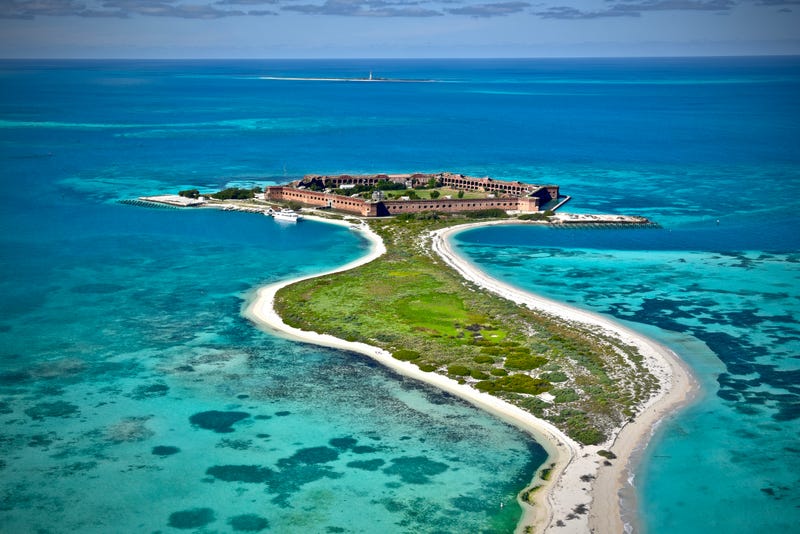
A Florida sheriff's office declared a "crisis" on Monday after hundreds of migrants arrived in small boats near the Florida Keys at Dry Tortugas National Park over the course of several days.
Monroe County Sheriff Rick Ramsay said many as 300 Cuban refugees landed on the Marquesas Keys and at Fort Jefferson in the Dry Tortugas, about 70 miles west of Key West. The National Park was forced to close for "several days" as a result.
"Dry Tortugas National Park will temporarily close to public access while law enforcement and medical personnel evaluate, provide care for and coordinate transport to Key West for approximately 300 migrants who arrived in the park over the past couple of days," the park said in a statement. "The closure, which is expected to last several days, is necessary for the safety of visitors and staff because of the resources and space needed to attend to the migrants."
The park, which has recently seen an increase in people arriving by boat from Cuba and landing on the islands, provides food, water and basic medical attention until the Department of Homeland Security arrives and takes the lead.
Separately, more than 200 migrants arrived by boats in other parts of the Florida Keys over the New Year's Day weekend. The Homeland Security Task Force said many of the migrants were stranded on remote, uninhabited islands.
"They will be removed, provided food, water & basic first aid before transfer to federal [law enforcement] agents in the Keys for processing... to determine their legal status to remain in the United States or be processed for removal and repatriation to their country of origin," the agency said in a statement.
Ramsay said some migrants had to wait day after landing for federal resources from the U.S. Border Patrol to arrive. He called the situation a "federal failure" that is aggravating the mass migration crisis in the Keys and creating a humanitarian crisis.
"This shows a lack of a working plan by the federal government to deal with a mass migration issue that was foreseeable," Ramsay said in a statement. "Refugee arrivals require a lot of resources from the Sheriff's Office as we help our federal law enforcement partners ensure the migrants are in good health and safe."
The most current wave of migration is being prompted by the economic turmoil, food shortages, and skyrocketing inflation in Cuba and other Caribbean nations. The Associated Press called it "the largest escalation of migrations by boat in nearly a decade," with hundreds of interceptions in recent months.


